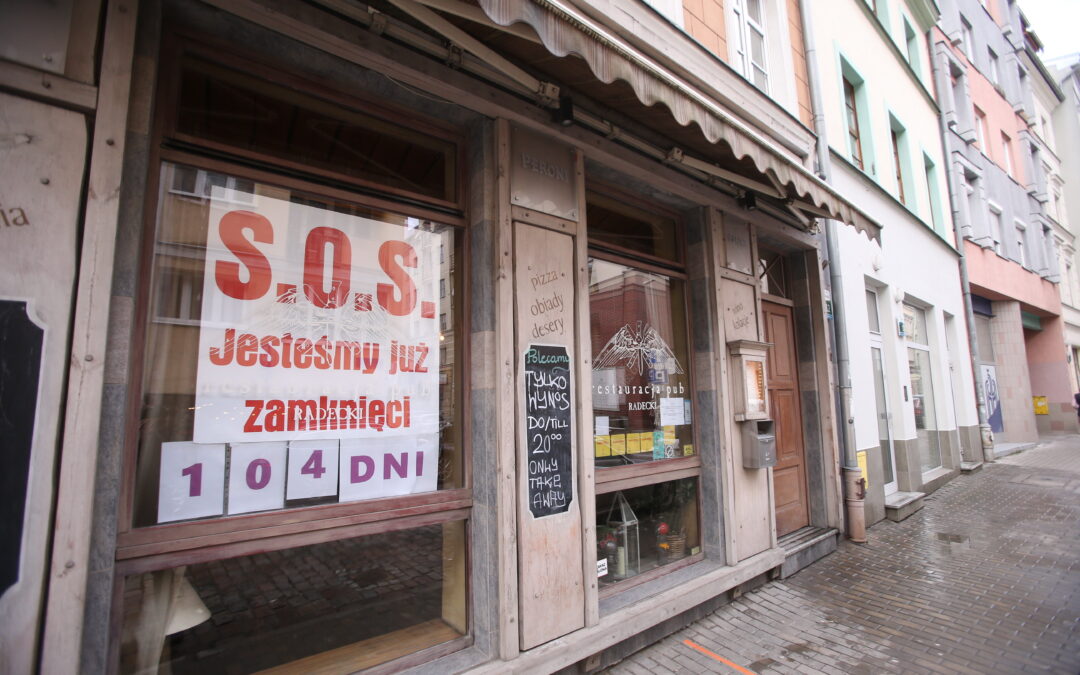More than 200 businesses are preparing to launch a lawsuit against the Polish state treasury, demanding compensation for what they argue is the unlawful forced closure of bars, cafes and restaurants during the pandemic.
They estimate that claims for closures, which have limited them to operating takeaways since October and also saw a shutdown during the first coronavirus wave, could run to billions of zloty.
Many believe that the restrictions violate rights guaranteed in Poland’s constitution and are therefore illegal. They have in recent months been boosted by a series of court cases that have gone in favour of those challenging lockdown measures.
The lawsuit, which is being organised by the Polish Gastronomy Chamber of Commerce (IGGP), an industry group, was announced early this month. Jacek Czauderna, who heads the IGGP, said that over 200 businesses have already joined and that they hope to gather 1,000 by the time they file the case in early April.
“Undoubtedly, in terms of quantity, it will be the largest class-action lawsuit in post-war Poland,” said Czauderna on Wednesday. If the court rules in their favour, the restaurant lobby plans to ask the state treasury to compensate them for losses caused by the enforced closures.
“The first stage is [to obtain] recognition of the unconstitutionality of closing the hospitality industry, ” Czauderna told RMF FM. “If we win, then each business will calculate their losses…We are talking about several billion zloty [in total].”
While hotels, casinos, museums, art galleries, cinemas, theatres and many sports facilities were allowed to reopen earlier this month, the government has ordered restaurants and bars to remain closed to visitors since 24 October.
On Wednesday this week, the health minister confirmed that current rules will continue to apply throughout Poland for at least two more weeks, with regionalised restrictions tightening lockdown in one province.
Czauderna, however, argues that the stricter approach towards the hospitality sector than other businesses and institutions is unjustified. He noted that infections have recently been rising, despite restaurants and bars remaining closed.
He also argued that the government’s use of research from the United States to justify the closures is like “comparing an apple to a pear”. The US, “where consumption outside the home is about 70-80%”, should not be used as a basis for rules in Poland, where it is only at 10%.
Czauderna likewise complained about a “lack of dialogue with the government”. This has “caused, on the one hand, despair, and, on the other hand, anger because business owners observe certain catering industries that are functioning very well,” he said, pointing to restaurants on state-owned trains, which continue to function.
“Another thing: most of the time casinos have been operating. There is also a catering service on ferries. So all the businesses in which the state monopoly has a stake, or is the owner, are active,” he told RMF FM.
The IGGP estimates that between 5,000-6,000 restaurants in Poland have already permanently closed as a result of the pandemic. Meanwhile, hundreds of business have reopened in defiance of the government lockdown rules.
Main image credit: Cezary Aszkielowicz / Agencja Gazeta

Maria Wilczek is deputy editor of Notes from Poland. She is a regular writer for The Times, The Economist and Al Jazeera English, and has also featured in Foreign Policy, Politico Europe, The Spectator and Gazeta Wyborcza.




















